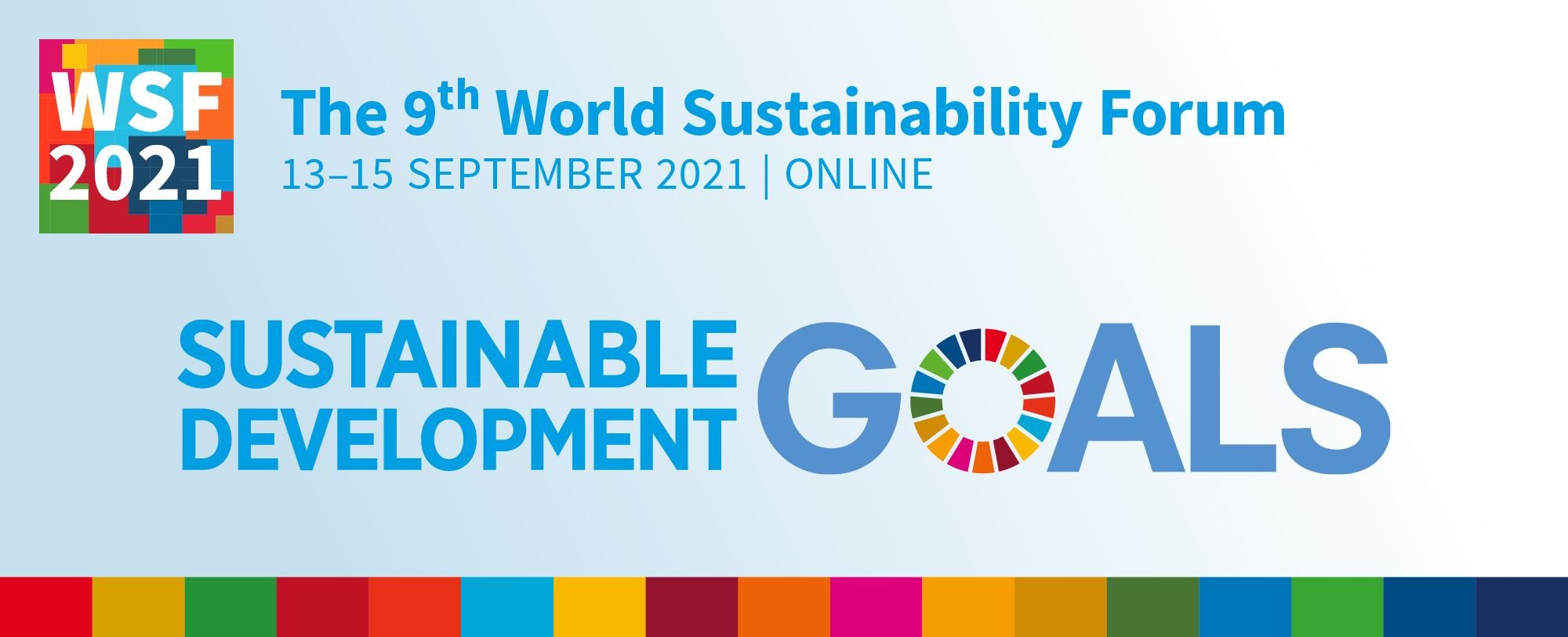Looking beyond Sustainability: Selected Papers from the 9th World Sustainability Forum (WSF 2021)
A special issue of Sustainability (ISSN 2071-1050).
Deadline for manuscript submissions: closed (31 December 2022) | Viewed by 30986
Special Issue Editors
Interests: light harvesting using inorganic coordination complexes as dyes in dye-sensitized solar cells (DSCs); development of emissive complexes for application in light-emitting electrochemical cells (LECs); water splitting and water oxidation catalysts;functional coordination polymers and networks
Special Issues, Collections and Topics in MDPI journals
Interests: tourism and human mobility; regional development and social/green marketing; human dimensions of global environmental change and conservation; environmental history, especially national park history & wilderness conservation; the use of tourism as an economic development and conservation mechanism
Special Issues, Collections and Topics in MDPI journals
Interests: bioeconomy; biomethane; circular economy; e-waste; economic analysis; photovoltaic; renewable energy; sustainability; waste management
Special Issues, Collections and Topics in MDPI journals
Interests: operations research; simulation modeling; optimization; NP-hard problems; liner shipping scheduling; evolutionary computation; mathematical programming; hybrid algorithms; metaheuristics; transportation engineering; GPS data processing
Special Issues, Collections and Topics in MDPI journals
2. Head of Department Global Health Economics & Policy, University of Kragujevac Faculty of Medical Sciences, 34000 Kragujevac, Serbia
Interests: global health; Global Burden of Disease Project; big data; health care financing & expenditures; evaluation of policy; programs and health system performance; organisation of health care markets; health economics; emerging markets; Mememship of euroCRIS; an appointed WHO EACHR Committee Member; an senior Clinical Pharmacology Specialist Physician been engaged in Advisory capacity to the WHO Director Cabinet Office for Europe in Copenhagen, Denmark and continue to do so since 2018; acquainted with Patents and brand name protection policies in Pharmaceutical industry
Special Issues, Collections and Topics in MDPI journals
Special Issue Information

Dear Colleagues,
September 2021 marks the sesquianniversary of much of the world entering into various forms of a lockdown or pandemic management, as well as the 6th anniversary of the 2030 Agenda for Sustainable Development and the UN Sustainable Development Goals. The pandemic has challenged our expectations for the future and has prompted a re-evaluation of the relationships between society, politics, and the commercial world. In the 9th World Sustainability Forum (https://wsf-9.sciforum.net/), we will consider all aspects of these new and evolving relationships and their impact on sustainability. Although all topics are welcome, we will have major sessions on the topics of Business & Finance, Climate, Health & Medicine, Water, and Education.
The health crisis and its consequences will not guarantee a more sustainable future, but it certainly provides a narrow window of opportunity to rethink outdated economic, social, and environmental arrangements. It is encouraging to note the widespread calls for a sustainable “new normal”.
This Special Issue is dedicated to the global debate as the world contemplates returning to a new normal, and we hope it will contribute to establishing platforms and networks among stakeholders, including lawmakers, commerce, the general public, and academic disciplines. The aim is to bring structure to the vision of a sustainable world, which deals fairly and transparently with the multifold issues of sovereignty, governance, and society that have arisen in the pandemic.
Prof. Dr. Edwin Constable
Prof. Dr. Colin Michael Hall
Prof. Dr. Idiano D'Adamo
Prof. Dr. Maxim A. Dulebenets
Prof. Dr. Mihajlo (Michael) Jakovljevic
Guest Editors
Manuscript Submission Information
Manuscripts should be submitted online at www.mdpi.com by registering and logging in to this website. Once you are registered, click here to go to the submission form. Manuscripts can be submitted until the deadline. All submissions that pass pre-check are peer-reviewed. Accepted papers will be published continuously in the journal (as soon as accepted) and will be listed together on the special issue website. Research articles, review articles as well as short communications are invited. For planned papers, a title and short abstract (about 100 words) can be sent to the Editorial Office for announcement on this website.
Submitted manuscripts should not have been published previously, nor be under consideration for publication elsewhere (except conference proceedings papers). All manuscripts are thoroughly refereed through a single-blind peer-review process. A guide for authors and other relevant information for submission of manuscripts is available on the Instructions for Authors page. Sustainability is an international peer-reviewed open access semimonthly journal published by MDPI.
Please visit the Instructions for Authors page before submitting a manuscript. The Article Processing Charge (APC) for publication in this open access journal is 2400 CHF (Swiss Francs). Submitted papers should be well formatted and use good English. Authors may use MDPI's English editing service prior to publication or during author revisions.
Keywords
- business and green finance
- climate change
- health and medicine for sustainable wellbeing
- water security and quality
- education equality and sustainability
- energy consumption and transition
- food, agriculture, and soil sciences
- transport and mobility sustainability
- other multi- and inter-disciplinary foci of sustainability
Benefits of Publishing in a Special Issue
- Ease of navigation: Grouping papers by topic helps scholars navigate broad scope journals more efficiently.
- Greater discoverability: Special Issues support the reach and impact of scientific research. Articles in Special Issues are more discoverable and cited more frequently.
- Expansion of research network: Special Issues facilitate connections among authors, fostering scientific collaborations.
- External promotion: Articles in Special Issues are often promoted through the journal's social media, increasing their visibility.
- e-Book format: Special Issues with more than 10 articles can be published as dedicated e-books, ensuring wide and rapid dissemination.
Further information on MDPI's Special Issue polices can be found here.









